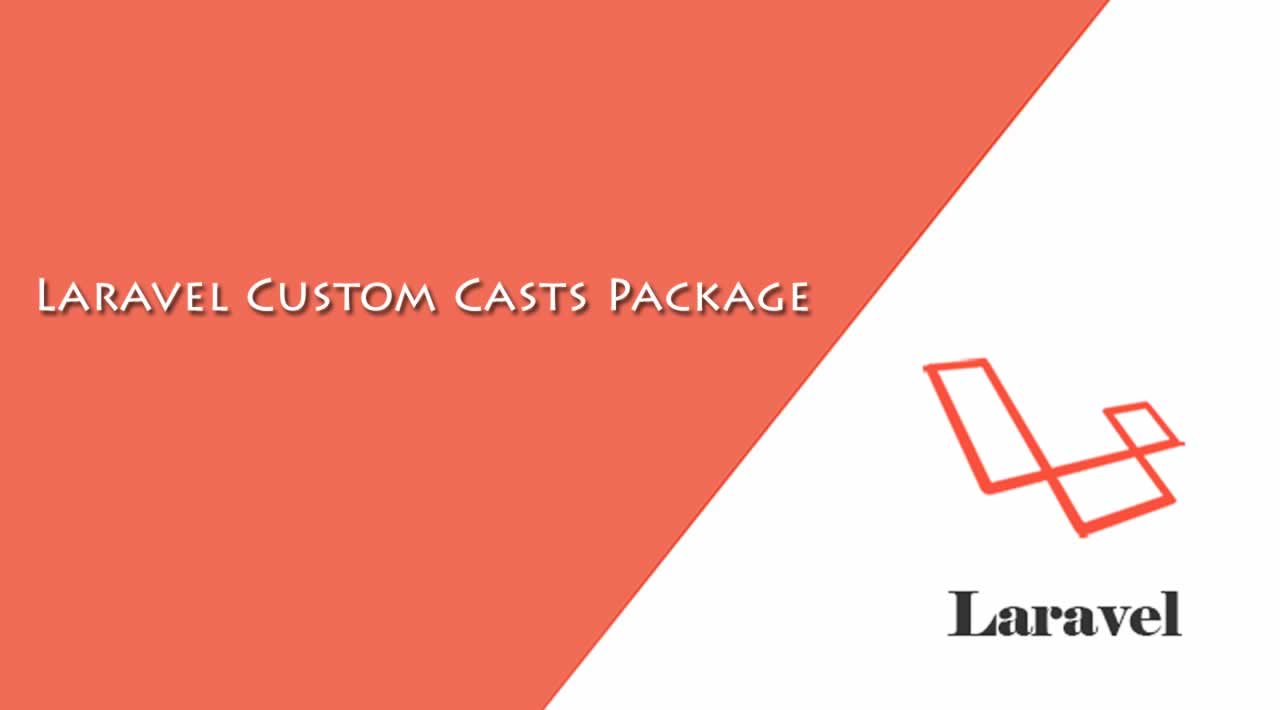Laravel Custom Casts Package
Originally published at https://github.com
Laravel custom casts works similarly to Laravel attribute casting, but with our customly defined logic (in separated class). This means that we can use the same casting logic across our models - we might write image upload logic and use it everywhere. Beside casting to our custom types this package gives us ability to listen and react to underlying model events.
Let's check out some Laravel common cast types and possible example of their usage:
namespace App;use Illuminate\Database\Eloquent\Model;
class User extends Model
{
protected $casts = [
‘is_admin’ => ‘boolean’,
‘login_count’ => ‘integer’
‘height’ => ‘decimal:2’
];
}
Beside bolean, integer and decimal from the example above, out of the box Laravel supports real, float, double, string, object, array, collection, date, datetime, and timestamp casts.
Sometimes it is convenient to handle more complex types with custom logic and ability to listen and react to model events. This is where this package come in handy.
Handling events directly from custom casts could be very useful if we’re, for e.g. storing image with custom casts and we need to delete it when the model gets deleted. Checkout the old documentation for this example.
vkovic packages
Please checkout my other packages - they are all free, well written and some of them are useful. If you find something interesting you might give me a hand for further package development, suggest an idea or some kind of improvement, star the repo if you like it or simply check out the code - there’s a lot of useful stuff under the hood.
- vkovic/laravel-commando ~ Collection of useful
artisancommands - Coming soon vkovic/laravel-event-log ~ Easily log and access logged events, optionally with additional data and related model
Compatibility
The package is compatible with Laravel and Lumen versions 5.5, 5.6, 5.7 and 5.8.
Installation
Install the package via composer:
composer require vkovic/laravel-custom-casts
Usage
Utilizing a custom casts class
To enable custom casts in our models, we need to use HasCustomCasts trait and we need to define which filed will be casted - per Laravel standards.
// File: app/User.phpnamespace App;
use App\CustomCasts\NameCast;
use Illuminate\Database\Eloquent\Model;
use Vkovic\LaravelCustomCasts\HasCustomCasts;class User extends Model
{
use HasCustomCasts;protected $casts = [ 'is_admin' => boolean // <-- Laravel default cast type 'name' => NameCast::class // <-- Our custom cast class (follow section below) ];}
Defining custom cast class
This class will be responsible for our custom casting logic.
// File: app/CustomCasts/NameCast.phpnamespace App\CustomCasts;
use Vkovic\LaravelCustomCasts\CustomCastBase;
class NameCast extends CustomCastBase
{
public function setAttribute($value)
{
return ucwords($value);
}public function castAttribute($value) { return $this->getTitle() . ' ' . $value; } protected function getTitle() { return ['Mr.', 'Mrs.', 'Ms.', 'Miss'][rand(0, 3)]; }}
Required setAttribute method receives $value that we’re setting on our model field and should return raw value that we want to store in our database.
Optional getAttribute method receives raw $value from database and should return mutated value. If we omit this method, raw value from database will be returned.
For the sake of this example we’ll implement one more method which will attach random title to our users when name is returned from database.
Let’s test it
Let’s create a user and see what will happen.
$user = new App\User;
$user->name = ‘john doe’;$user->save();
This will create our new user and his name will be stored in the database, first letters uppercased.
When we retrieve our user and try to get his name, title will be prepended to it, just like we defined it in our custom NameCast class.
dd($user->name); // ‘Mr. John Doe’
Handling model events
Let’s say that we want to notify our administrator when user name changes.
// File: app/CustomCasts/NameCast.phppublic function updated()
{
$attribute = $this->attribute;if($this->model->isDirty($attribute)) { // Notify admin about name change }}
Beside updated method, we can as well create other methods for standard model events: retrieved, creating, created, updating, saving, saved, deleting, deleted, restoring and restored.
Other functionality
As you can assume from code above, we can easily access casted attribute name as well as instance of underlying model.
// File: app/CustomCasts/NameCast.php// Get model attribute name being casted
dd($this->attribute); // ‘name’// Access our
Usermodel
dd(get_class($this->model)); // ‘App/User’
Beside this we can retrieve all casted attributes and their corresponding classes directly from our model.
// File: app/User.phpdd($this->getCustomCasts()); // [‘name’ => ‘App/CustomCasts/NameCast’]
More examples
You can find more examples on the old documentation.
Thanks for reading ❤
If you liked this post, share it with all of your programming buddies!
Follow me on Facebook | Twitter
Further reading
☞ PHP with Laravel for beginners - Become a Master in Laravel
☞ Projects in Laravel: Learn Laravel Building 10 Projects
☞ Laravel for RESTful: Build Your RESTful API with Laravel
☞ Fullstack Web Development With Laravel and Vue.js
☞ Laravel 5.8 Tutorial for Beginners
☞ Laravel 5.8 Ajax CRUD tutorial using Datatable JS
☞ Laravel 5.8 Tutorial from Scratch for Beginners
☞ Build RESTful API In Laravel 5.8 Example
☞ Login with Google in Laravel 5.8 App using Socialite Package
☞ Laravel PHP Framework Tutorial - Full Course for Beginners (2019)
#laravel #php #web-development
